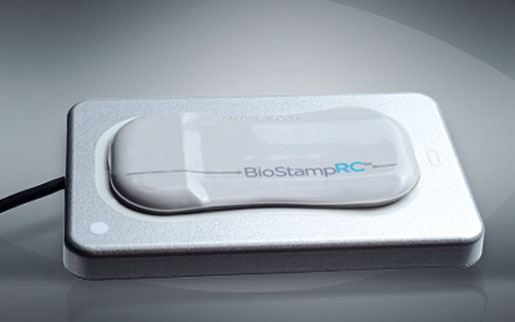We asked industry experts to weigh in on what medical technologies will be big in 2017. Here's what to expect in the field of sensors.
December 26, 2016

We asked industry experts to weigh in on what medical technologies will be big in 2017. Here's what to expect in the field of sensors.
Craig Scherer
From expanded indications for transcatheter aortic valve replacement systems to bioresorbable stents, medical technology took some big leaps forward in 2016. So what might 2017 have in store? We asked industry experts for some predictions. Here, in their own words, are the medical technologies they expect to see making headlines in 2017.
Sensors
We'll be hearing a lot more about sensors in 2017. We hear a great deal about body-worn sensors, but sensors are being incorporated everywhere--not only because of the data gathering possibilities, but also the ability to drive better outcomes. Sensors are evolving at a staggering rate and are being made smaller, faster, more sensitive, and with lower energy needs than ever before. The applications are endless.
Besides the data potential, the main driver to developing disruptive sensor applications is to take the human variability out of treatment. This is not to say caregivers and clinicians will lose the control or physical feedback they need; instead, it will provide accuracy and consistency to devices and systems, enabling clinical users to make more accurate and informed decisions. Sensors will show up in places where human "judgement" and "experience" have been traditionally used to make critical treatment decisions.
In the past five years, startups and early-stage companies have been developing and driving many of the medical device technology breakthroughs we've seen. Disruptive sensor technologies are no different. Briteseed has developed a smart surgical tool technology that employs a sensor within the jaws of laparoscopic dissector tools to help surgeons find and avoid hidden blood vessels, ureters, and bile ducts. Output Medical has developed its sensors and algorithms to automatically chart urine output, eliminating the need for a clinician to estimate the volume in the collection bag manually. Urine output is a significant indicator of overall health and the first indication of kidney failure for patients in the ICU. Finally, sensors provide "GPS" information on sub-dermal anatomy to physicians when inserting a spinal tap needle in the new IntuiTap Medical technology.
Those companies are just a few of the thousands of startups that are driving medical technology breakthroughs. We will see an explosion of acquisitions of these companies by all the big-name medical OEMs. Most large medical device companies have created groups focused solely on the vetting and acquisition of these technologies. We believe 2017 will bring with it record numbers of acquisition and licensing deals of these startups providing disruptive technology solutions for their innovation initiatives by OEMs.
Craig Scherer is the cofounder of Insight Product Development and director of Insight Accelerator Labs.
[Image courtesy of MC10]
You May Also Like


